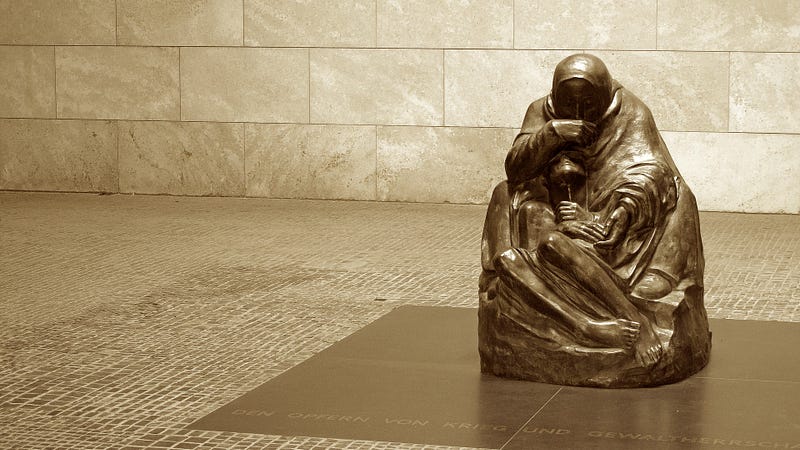Exploring the True Meaning of Forgiveness: A Deep Dive
Written on
Understanding Forgiveness
As I reflect on the topic of forgiveness, we find ourselves approaching Easter, a significant time for Christians globally. In the coming days, believers will remember the crucifixion and resurrection of Christ. While many will share insights about these crucial events in Christianity, it’s important to recognize that forgiveness is a fundamental aspect of Easter's message, resonating with both believers and non-believers alike.
When we search for the definition of forgiveness in the Collins Dictionary, we encounter a rather simplistic description: “the act of forgiving someone.” This definition, however, barely scratches the surface of what forgiveness truly encompasses.
Forgiveness inherently involves multiple parties and usually stems from a prior incident that necessitates forgiveness. Surprisingly, we often assume that forgiveness is primarily about the other person. We may feel a range of emotions—anger, sadness, or disappointment—due to someone's actions or words directed toward us.
Eventually, we might reach a point of forgiveness for that individual, though this can be a lengthy journey. When we finally arrive at the stage where we can forgive and let go, an incredible realization dawns upon us: the only person truly suffering from our lingering anger or sadness is OURSELVES.
This concept can be challenging to accept amidst our pain and frustration, yet forgiveness is fundamentally more about OUR emotional well-being than about the other person involved.
Imagine forgiveness as a journey toward reconciling with an unpleasant experience. Accepting the hurt we’ve endured leads us to a profound and liberating revelation: the only person we were genuinely harming with our bitterness was ourselves.
Thus, while forgiveness may appear to be a generous gesture outwardly, its essence lies in our own liberation. It’s about granting ourselves the opportunity to move forward in life.
Yet, achieving forgiveness is no simple feat. It embodies both an act and a process. It begins with the conscious decision to release our animosity. Following that, we embark on the PROCESS of forgiveness, which requires consistent effort until we are genuinely free from the negativity we carry.
It's crucial to understand that forgiving someone does NOT mean we condone their actions or agree with their perspective. Instead, forgiveness is a means for us to attain the peace necessary to progress in our lives.
The initial step is recognizing that forgiveness does not absolve the wrongdoer; rather, it liberates the victim. It’s a gift we bestow upon ourselves.
T.D. Jakes wisely noted, "Forgiveness liberates the victim." While reconciling with the person we forgive can be beneficial—if not essential—it is not a prerequisite. Ultimately, forgiveness centers on our own healing and moving beyond painful experiences.
Key Takeaway: Remember that the primary beneficiary of forgiveness is ourselves.
This marks the beginning of a series of posts I plan to write in the coming weeks, so I invite you to return as I explore this captivating and essential topic.

Chapter 1: The Essence of Forgiveness
In this video, "What does it mean to forgive someone? | Our Three Cents," the hosts delve into the deeper implications of forgiveness, exploring its significance in our lives.
Chapter 2: Defining Forgiveness
The video "What Is Forgiveness? The Best Definition" provides a comprehensive overview of forgiveness, clarifying its meaning and importance.